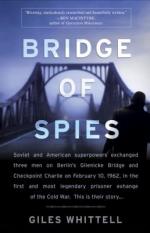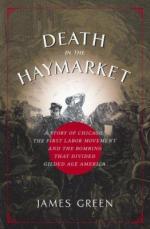May 5, 2020 | SuzyQ
May 1, 1960. An American U-2 spy plane piloted by Francis Gary Powers was shot down over Central Russia. Powers was tried, convicted and sentenced to 10 years in prison, but was released in exchange for an imprisoned Soviet spy.
May 2, 2011. Osama bin Laden was killed by U.S. Special Forces during a raid on his secret compound in Pakistan.
May 4, 1886. The Haymarket Square Riot occurred in Chicago after 180 police officers advanced on 1,300 persons gathered in the square listening to speeches of labor activists and anarchists. An incendiary device thrown by an unknown person caused police to open fire and led to the death of several people, including eight policemen.
May 4, 1970. At Kent State University, four students were killed by National Guardsmen who opened fire on a crowd of 1,000 students protesting President Richard Nixon's decision to invade Cambodia.
May 5, 1961. Alan Shepard became the first American in space when he piloted the spacecraft Freedom 7 during a 15-minute 28-second suborbital flight that reached an altitude of 116 miles above the earth.
May 6, 1937. Following a trans-Atlantic voyage, the German airship Hindenburg caught fire as it neared the mooring mast at Naval Air Station Lakehurst in New Jersey, Thirty six of the 97 passengers and crew were killed.
May 7, 1915. The British passenger ship Lusitania was torpedoed and sunk by a German submarine off the coast of Ireland. 1,198 of its 1,924 passengers were killed, including 114 Americans.
May 8, 1942. The Battle of the Coral Sea began in the Pacific. The battle marked Japan's first defeat of World War II.
May 10, 1994. Nelson Mandela was inaugurated as president of South Africa.
May 12, 1937. George VI crowned King of Great Britain following the abdication of his brother, Edward VIII.
May 13, 1846. Congress declared war on Mexico. This controversial action resulted in the annexation of lands that became parts of the states of Oklahoma, New Mexico, Arizona, Nevada, California, Utah and Colorado - as well as the loss of over 11,000 soldiers.
May 14, 1607. The first permanent English settlement in America was established at Jamestown, Virginia.
May 14, 1796. The smallpox vaccine was developed by Edward Jenner.
May 17, 1875. The first Kentucky Derby took place at Churchill Downs in Louisville. The winning horse was Aristides.
May 17, 1954. In Brown v. Board of Education, the U.S. Supreme Court unanimously ruled that segregation of public schools "solely on the basis of race" are inherently unequal.
May 18, 1980. Mount St. Helens volcano erupted in Washington State This was its first major eruption since 1857.
May 20, 1932. Amelia Earhart became the first woman to fly solo across the Atlantic Ocean.
May 21, 1881. The American Red Cross was founded by Clara Barton.
May 24, 1844. Samuel Morse sent the first official telegraph message, "What hath God wrought?"
May 24, 1787. The Constitutional Convention began in Philadelphia.
May 26, 1940. The Dunkirk evacuation was begun in order to save the British Expeditionary Force which was trapped by the German army on the northern coast of France. Some 200,000 British and 140,000 French and Belgian soldiers were ferried across the English Channel in boats and vessels of all shapes and sizes.
May 27, 1937. The Golden Gate Bridge opened in San Francisco.
May 29, 1660. The English monarchy was restored under Charles II.
May 30, 1922. The Lincoln Memorial was dedicated.
May 31, 1889. The Johnstown Flood killed 2,300 people in Pennsylvania.

























